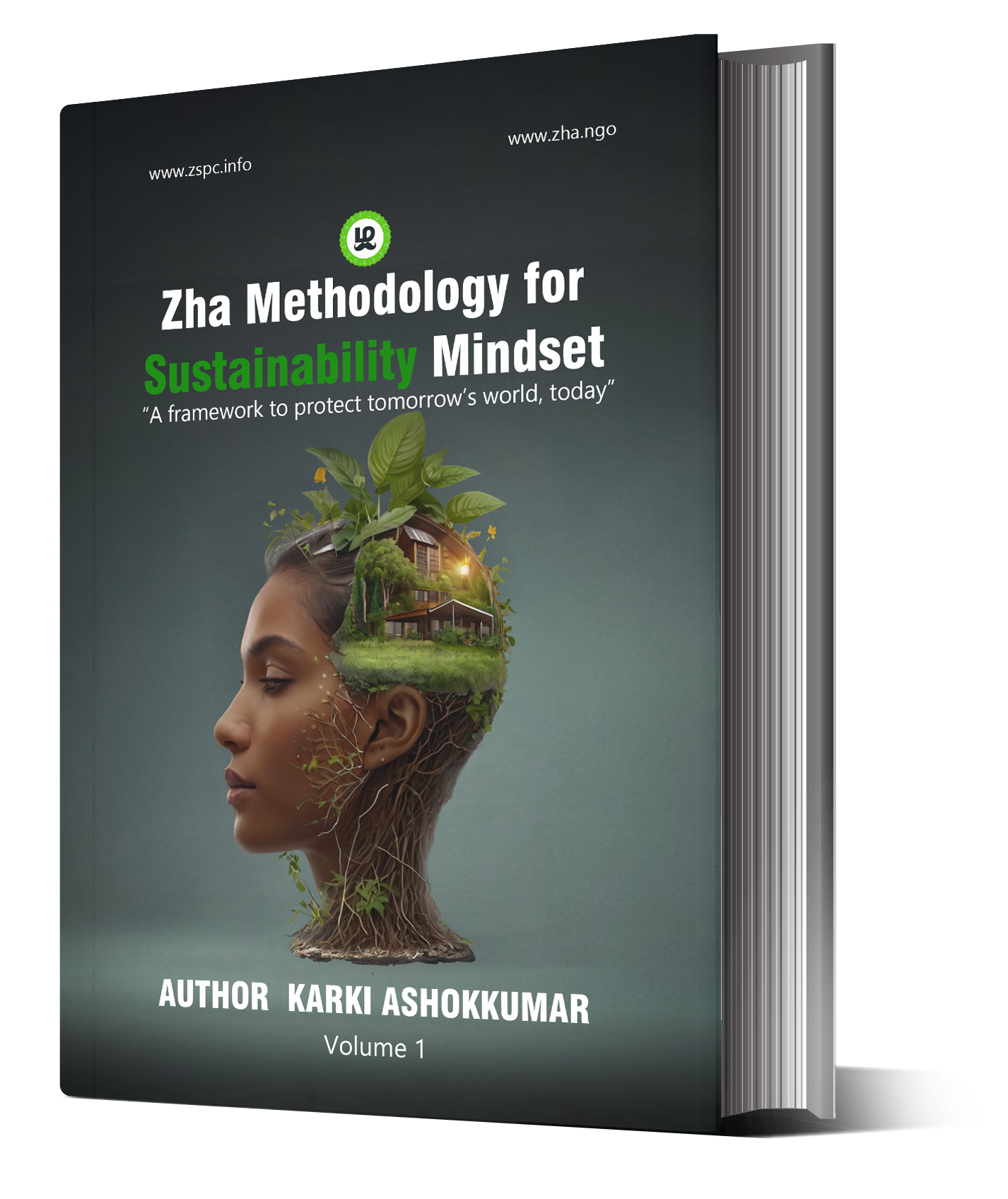ZSPC Core Functions

How ZSPC Works:
Once an organization or institution signs up to integrate with the ZSPC, we follow a collaborative model to implement the Zha Sustainability Practitioners Certifications through a step-by-step process:
- Introduction
Principles and Values: ZSPC's curriculum is grounded in core sustainability principles such as ecological integrity, social equity, economic viability, and cultural vitality. These principles guide every aspect of the learning experience, ensuring that participants understand and value the interconnectedness of human and environmental systems.
Holistic Approach: The framework integrates knowledge from diverse fields, encouraging a holistic understanding of sustainability that encompasses environmental, social, and economic dimensions.
- Curriculum Design:
Interdisciplinary Content: The curriculum includes modules on environmental science, social justice, economics, and cultural studies. This interdisciplinary approach ensures that students grasp the multifaceted nature of sustainability challenges.
Project-Based Learning: Students engage in real-world projects that address local and global sustainability issues. These projects foster critical thinking, problem-solving skills, and practical application of theoretical knowledge.
Collaborative Activities: Group projects, community service, and partnerships with local organizations are integral to the curriculum. These activities promote teamwork, community engagement, and a sense of shared responsibility.
- Implementation Strategies:
Workshops and Seminars: Regular workshops and seminars conducted by sustainability experts provide students with up-to-date knowledge and practical skills.
Mentorship Programs: Experienced sustainability practitioners mentor students, offering guidance and support as they navigate their sustainability journeys.
Resource Libraries: Access to a comprehensive collection of books, articles, and digital resources allows students to explore sustainability topics in depth.

ZSPC Key Transformative Drivers
- Education
- Empowerment
- Engagement
- Innovation
Providing students with knowledge about sustainability issues, such as climate change, resource depletion, and social equity, to foster awareness and understanding.
Encouraging students to take ownership of their learning and become agents of change in their communities by developing skills in critical thinking, problem-solving, and collaboration.
Creating opportunities for students to actively participate in sustainability initiatives, such as green clubs, community projects, and research, to apply their knowledge and skills in practical settings.
Inspiring creativity and innovation among students to develop sustainable solutions to complex challenges, such as renewable energy technologies, sustainable agriculture practices, and waste reduction strategies. Overall, the ZHA sustainability mindset methodology aims to cultivate a mindset shift towards sustainability, where students recognize their role in creating a more resilient and equitable world for present who become future generations who will eventually lead to the circular economy model of the nation

Inculcate the 12 ZHA Sustainability Mindset Principles through ZSPC Curriculum
The Zha Sustainability Practitioners Certifications operates on the core 12 principles such as
- Feeling sufficient
- Encouraging and Rewarding
- Long-Term Thinking
- Risk-based decision making
- Gender equality
- Sharing and caring collaboration
- Environmental Stewardship
- Possessing a fail-fast approach helps in setting an appropriate vision
- Community Engagement
- Social equality
- Continuous Learning and Improvement
- Resource Conservation
It could relate to concepts like lean thinking or sufficiency in resource consumption.
Rewarding and awarding the recognized people while they are alive and ensure everybody valuable persons in the society are recognized at the right moment
Emphasize decision-making that considers the long-term impacts on the environment, society, and economy, rather than focusing solely on short-term gains.
It’s part of a sustainability strategy, especially in terms of assessing and mitigating environmental and social risks.
To enable diverse perspectives, harmony and opportunities
It emphasizes cooperation and collective action , creates more sustainable practitioners for environmental and social goals.
Take responsibility for protecting and preserving the natural environment, including biodiversity, ecosystems, and natural resources.
Adopting a fail-fast approach is pivotal. It fosters an appreciation for adaptability, a core habit in sustainability, essential for crafting an appropriate vision.
Involve stakeholders, including local communities, in decision-making processes to ensure that sustainability initiatives reflect their needs, concerns, and values.
Strive for fairness and justice in addressing social issues such as poverty, inequality, and access to resources, ensuring that the benefits and burdens of sustainability efforts are distributed equitably.
Embrace a culture of learning and reflection, continuously seeking opportunities to improve sustainability practices based on feedback, evaluation, and new information.
Prioritize the efficient use of natural resources, minimizing waste and promoting recycling and reuse wherever possible.

Our ZSPC Initiatives Focus Areas
- Global Learning Networks for Next Gen:
- Industry and Academic Collaborations:
- Community Partnerships:
- Technology Sharing Initiatives:
- Public Policy Engagement:
- Funding and Resource Mobilization:
Establish connections with schools and universities around the world to create a learning network. Through this network, students can participate in virtual exchange programs, collaborative international research projects, and global forums to discuss and solve key sustainability challenges.
Form partnerships with local businesses and industries to provide students with real-world experience through internships, apprenticeships, and joint research projects. This collaboration can also involve businesses sponsoring school projects related to sustainable development, providing both funding and expertise.
Develop partnerships with local governments and non-governmental organizations (NGOs) to engage students in community-based projects. These projects can include urban sustainability initiatives, local environmental conservation efforts, and social outreach programs. This helps students apply their learning in real-world contexts and make a tangible impact in their communities.
Collaborate with tech companies to gain access to advanced technologies that can be used in educational settings. This can include software for simulating environmental changes, hardware for renewable energy projects, or platforms that facilitate remote learning and global classrooms.
Encourage students to engage with policy-making processes through model United Nations programs or local government internships. This can help students understand the complexities of governance and public administration, particularly in relation to sustainability issues.
Work with external donors, alumni networks, and grant-making organizations to secure funding for sustainability projects. These funds can support the development of new sustainability courses, scholarships for research in sustainable development, or the creation of green spaces and sustainable facilities on campus.
It provides a platform for members to not only learn from each other but also to inspire positive change within their communities and beyond



